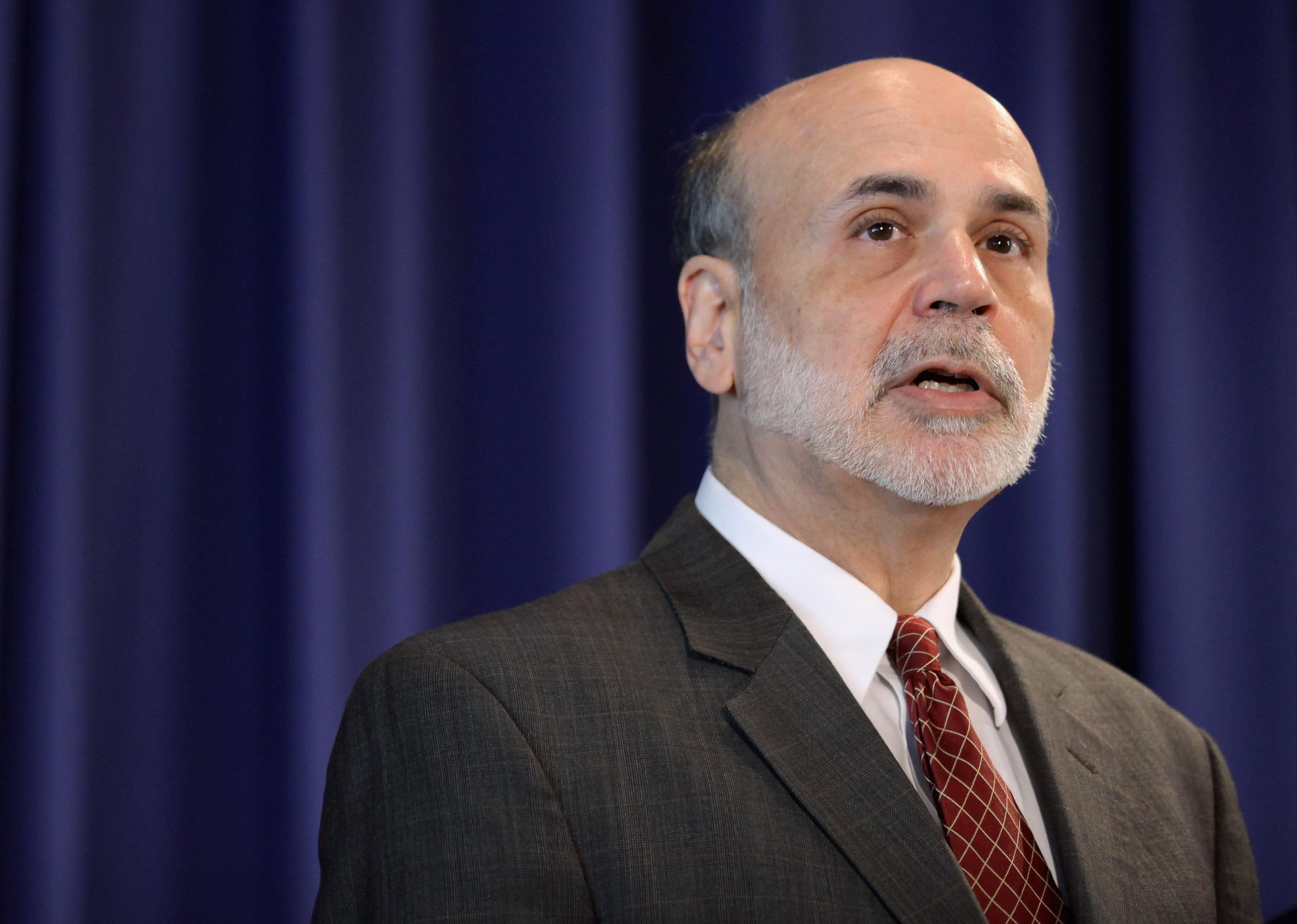Readers who followed by from ThinkProgress will know that I’ve become a proponent of the idea that the Federal Reserve ought to adopt a policy known as Nominal GDP level targeting—in effect a guarantee that total economy-wide spending will catch-up to some pre-crisis trend. The idea has long been floating around in monetary theory circles, and during the course of the Great Recession was pushed by a smallish band of dissident right-wing economists, most notably Scott Sumner and David Beckworth. More recently it got a huge boost from the Goldman Sachs macroeconomic forecasting team, which led to some additional cheerleading from Christina Romer, Paul Krugman, and other heavyweight progressives. In the economics blogosphere, it’s become quite popular with proponents from Brad DeLong to Ramesh Ponnuru and fans at the Economist and Wall Street Journal as well as now here at Slate. Under the circumstances, it’s encouraging that the Federal Reserve’s Open Market Committee considered the issue at their meeting early this month. Unfortunately, according to the minutes they rejected it for reasons that seem pretty shallow:
More broadly, a number of participants expressed concern that switching to a new policy framework could heighten uncertainty about future monetary policy, risk unmooring longer-term inflation expectations, or fail to address risks to financial stability. Several participants observed that the efficacy of nominal GDP targeting depended crucially on some strong assumptions, including the premise that the Committee could make a credible commitment to maintaining such a strategy over a long time horizon and that policymakers would continue adhering to that strategy even in the face of a significant increase in inflation. In addition, some participants noted that such an approach would involve substantial operational hurdles, including the difficulty of specifying an appropriate target level. In light of the significant challenges associated with the adoption of such frameworks, participants agreed that it would not be advisable to make such a change under present circumstances.
The claim that this would “heighten uncertainty” seems to me to be just flat-out wrong. Normally there’s very little uncertainty about the Fed’s attitude. Normally we’re close to full employment and close to the Fed’s inflation target. We expect that if inflation starts to rise, the Fed will tighten. We expect that if unemployment starts to rise, the Fed will loosen. We’re a bit uncertain as to how the Fed will respond to a negative supply shock that pushes inflation up and unemployment down, but we’re also hoping no such shock arrives. Today, however, there’s a great deal of uncertainty. We’re close to the Fed’s inflation target but nowhere near full employment. If millions of currently jobless people return to daily commuting, that’s all but certain to push gasoline prices up. If millions of currently jobless people living with parents or siblings get jobs and move into places of their own, that’s all but certain to push rents up. If that happens will the Fed tighten money to curb the inflation, or will it tolerate the inflation as passing pain needed to return to full employment? Nobdoy really knows, so nobody dares expect growth. One of the great virtues of a move toward NGPD level targeting is precisely to provide certainty on this point. The Fed will tighten if and only if total economy-wide spending increases so fast as to push us above the desired trend level.
The other concerns are much more sensible. But they invite the reply: So what? Or more precisely, what is it about the current approach that’s working so well that it would be a terrible idea to change? It’s true that a declared policy of NGDP level targeting would only be effective if it’s credible, but why is that a reason to continue with an approach that’s definitely ineffective? The bottom line, I think, is simply that despite NGDP level targeting’s newfound elite support monetary stimulus is not on the agenda of rank and file economists so The Powers That Be refuse to engage in any creative thinking about it.
